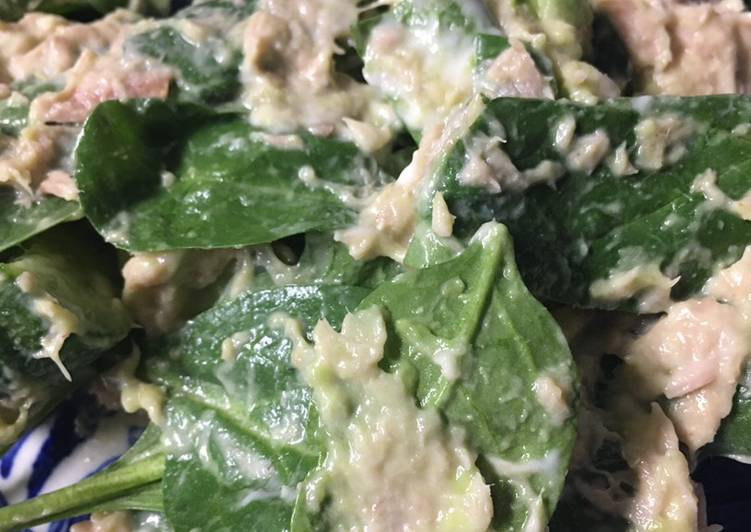
Hello everybody, hope you’re having an incredible day today. Today, we’re going to prepare a special dish, for bento and beer snacks taro root isobe mochi. One of my favorites. For mine, I’m gonna make it a bit tasty. This will be really delicious.
Great recipe for For Bento and Beer Snacks Taro Root Isobe Mochi. I like them in stew, but I also make them for bento, as beer snacks, and as a regular side dish for meals. I think I first began flavoring them lighter when I stopped breast feeding. I like them in stew, but I also make them for bento, as beer snacks, and as a regular side dish for meals.
For Bento and Beer Snacks Taro Root Isobe Mochi is one of the most popular of recent trending foods on earth. It is appreciated by millions every day. It is simple, it’s quick, it tastes delicious. For Bento and Beer Snacks Taro Root Isobe Mochi is something which I have loved my entire life. They are nice and they look fantastic.
To get started with this particular recipe, we must first prepare a few ingredients. You can have for bento and beer snacks taro root isobe mochi using 8 ingredients and 8 steps. Here is how you cook that.
The ingredients needed to make For Bento and Beer Snacks Taro Root Isobe Mochi:
- Get 10 Taro potatoes (Satoimo)
- Prepare 1 tbsp Sake
- Take 1 tbsp ●Katakuriko
- Make ready 1/4 tsp ●Salt
- Take 4 sheets Flavored nori seaweed
- Prepare 1/2 tbsp Vegetable oil
- Prepare 2 tbsp ★Mentsuyu (2x concentrate)
- Make ready 1 tsp ★Sugar
Serving them as a snack will also make kids happy. Isobe means 'rocky shore', and in Japan a rocky shore is a place where seaweed abounds. The term 'isobe' has come to refer to dishes including seaweed; soy sauce coated mochi wrapped in nori seaweed is usually called isobeyaki (seaweed-cooked) or isobemaki (seaweed-wrapped), although other fillings can be used, such as scallops, taro root, and even cheese! I like them in stew, but I also make them for bento, as beer snacks, and as a regular side dish for meals.
Steps to make For Bento and Beer Snacks Taro Root Isobe Mochi:
- Peel the taro potatoes, and lightly rinse the slime in water. Place in a pot with enough water to cover the taro potatoes, add 1 tablespoon sake, and boil over medium heat for about 15 minutes.
- Transfer to a bowl after boiling, and mash. You can leave a bit of texture without mashing it completely.
- Add the • ingredients, and mix throughly.
- Lightly moisten your hand, divide into 10 equal portions, and flatten. Cut nori seaweed into approximate sizes, and stick on both sides.
- Pour vegetable oil into a frying pan, and cook on both sides over medium heat until golden brown.
- Add the ★ mixture, coat everything quickly, and it is done. It burns easily, so cook for a short time while shaking the pan back and forth.
- The warm and chewy texture of the taro roots and the sweet and spicy sauce draws out the deliciousness! You can enjoy it piping hot or cold.
- Mix sugar and soy sauce in a separate container without coating in the sauce, and eat! This will produce yet another different and delicious texture to enjoy.
The term 'isobe' has come to refer to dishes including seaweed; soy sauce coated mochi wrapped in nori seaweed is usually called isobeyaki (seaweed-cooked) or isobemaki (seaweed-wrapped), although other fillings can be used, such as scallops, taro root, and even cheese! I like them in stew, but I also make them for bento, as beer snacks, and as a regular side dish for meals. I think I first began flavoring them lighter when I stopped breast feeding. Serving them as a snack will also make kids happy. A deliciously simple way to enjoy mochi and red bean paste, this recipe's red and white colours make it a fitting dessert to celebrate the Japanese New Year!.
So that is going to wrap it up with this exceptional food for bento and beer snacks taro root isobe mochi recipe. Thanks so much for reading. I am sure that you can make this at home. There is gonna be interesting food at home recipes coming up. Don’t forget to save this page on your browser, and share it to your family, colleague and friends. Thank you for reading. Go on get cooking!

